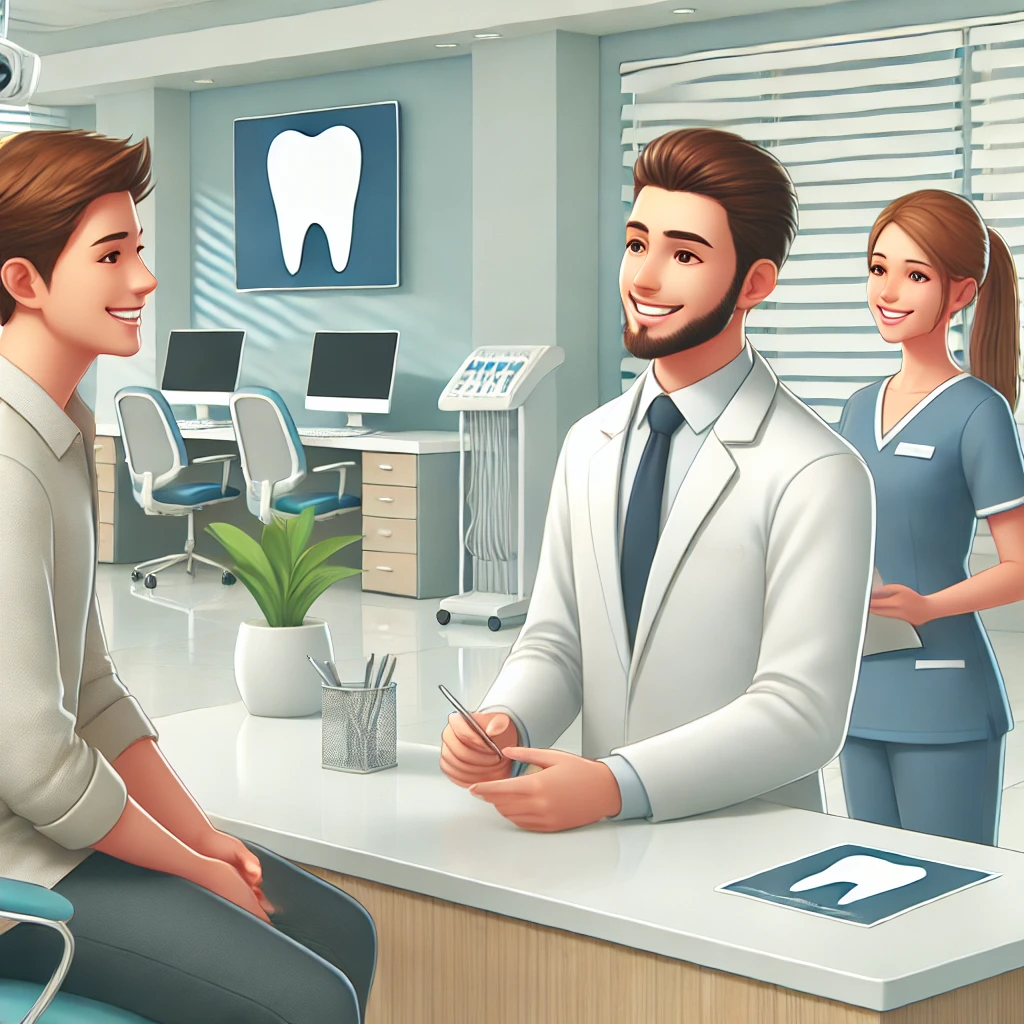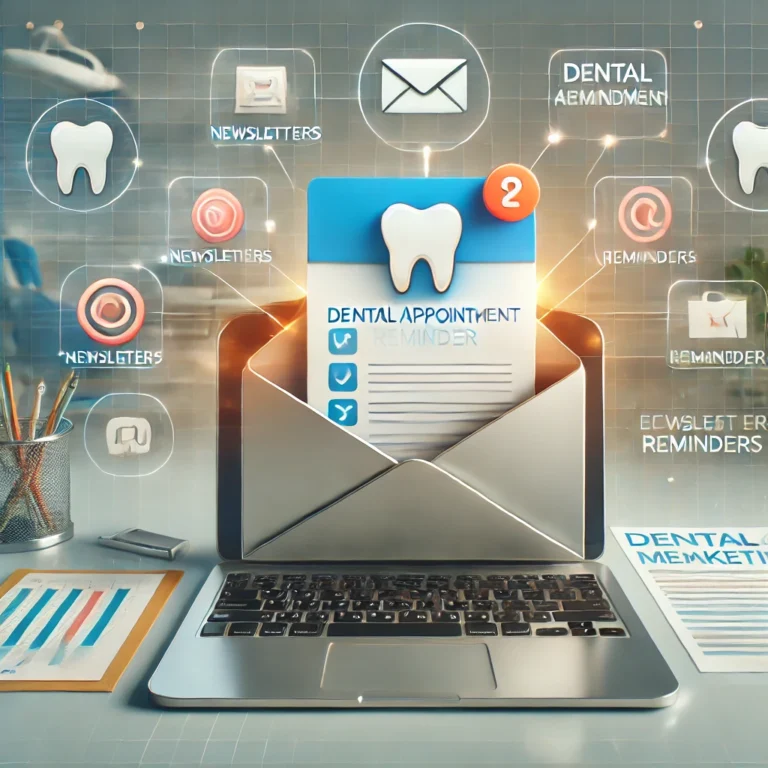
Patient retention is the foundation of a successful dental practice. While advanced technology and high-quality treatments are essential, it’s often the personal touch from your staff that leaves a lasting impression. Well-trained, knowledgeable, and friendly team members create an environment where patients feel valued and cared for—key factors in encouraging them to return. Here’s how investing in staff training can transform your practice’s ability to retain patients.
First Impressions Matter
The moment a patient contacts your practice—whether over the phone, via email, or in person—their experience begins. That first interaction sets the tone for the entire relationship, which is why your front desk staff plays such a vital role.
Why the Front Desk is Critical
- Warm Welcomes: A friendly and professional demeanor can immediately put patients at ease, especially those who may be nervous.
- Efficient Scheduling: Proper training ensures that appointments are managed seamlessly, reducing wait times and frustration.
- Clear Communication: Staff who confidently explain procedures, financial policies, and insurance coverage build trust and transparency with patients.
Example: Imagine a new patient calling to schedule their first appointment. A receptionist who listens attentively, answers questions clearly, and provides helpful details leaves a positive first impression that sets the stage for loyalty.
Building Trust Through Knowledge
Patients often look to your team for guidance and reassurance about their oral health. Knowledgeable staff members who can confidently explain procedures and answer questions help establish trust.
The Role of Clinical Staff
- Educating Patients: Training your team to explain the benefits, risks, and steps involved in treatments ensures patients feel informed and comfortable.
- Handling Concerns: Whether it’s addressing fear about a root canal or explaining why a treatment is necessary, empathetic communication makes all the difference.
- Staying Current: Encouraging continuing education keeps your team up-to-date with the latest advancements, enhancing credibility and care quality.
Patients who feel their questions are answered and concerns addressed are more likely to trust your practice and return for future care.
The Power of Friendliness
In addition to expertise, your team’s attitude can significantly impact how patients perceive their experience. A kind and welcoming demeanor creates a sense of comfort that technical skills alone cannot provide.
Creating a Positive Environment
Small actions—like remembering a patient’s name, smiling, or asking about their family—show that your team values them as individuals. These gestures can help patients feel seen and appreciated.
Empathy in Action
For patients with dental anxiety, empathy is particularly important. A hygienist who takes the time to explain each step of a cleaning or a dental assistant who offers reassurance during a procedure can turn a stressful visit into a positive one.
Example: A nervous patient comes in for a filling. The assistant notices their discomfort and takes a moment to explain what to expect, offering to stop anytime they need a break. That simple act of kindness leaves the patient feeling cared for—and more likely to return.
Problem-Solving Keeps Patients Coming Back
Mistakes happen, but how your team handles them can make or break patient relationships. Whether it’s a scheduling error, billing issue, or misunderstanding, proactive problem-solving demonstrates your commitment to excellent care.
Empowering Staff to Handle Issues
- Conflict Resolution Skills: Training staff to manage complaints or resolve disputes professionally ensures that patients feel heard and respected.
- Clear Follow-Up: When an issue arises, following up with the patient to confirm it’s been resolved shows accountability.
- Anticipating Problems: Proactively addressing common concerns, such as insurance queries, prevents frustration.
Patients who see your team go above and beyond to resolve issues are more likely to stay loyal, even after a hiccup.
The ROI of Staff Training
Investing in staff training doesn’t just benefit your patients—it’s a smart financial move. Retaining existing patients costs far less than acquiring new ones, and satisfied patients are more likely to recommend your practice to others.
Benefits of Training
- Higher Retention Rates: When patients feel valued and cared for, they’re more likely to stay with your practice long-term.
- Positive Reviews: Friendly, professional interactions often lead to glowing testimonials online, which attract new patients.
- Better Team Morale: Training boosts confidence and job satisfaction among staff, creating a positive work environment that patients can sense.
Example: A practice that implemented customer service training for its staff saw a 15% increase in patient retention over six months, along with a noticeable improvement in online reviews.
How to Implement Effective Staff Training
Creating a culture of learning and development in your practice ensures that training becomes an ongoing priority.
- Onboarding New Hires: Provide comprehensive training on protocols, technology, and patient communication from day one.
- Customer Service Workshops: Invest in sessions that teach empathy, active listening, and problem-solving.
- Continuing Education: Encourage clinical staff to attend seminars, earn certifications, or participate in webinars to stay current.
- Regular Feedback: Collect input from patients and team members to identify areas for improvement.
- Recognize Achievements: Celebrate staff who excel in patient interactions or complete additional training to reinforce the value of their efforts.
Conclusion
Your staff is the heart of your dental practice, and their training directly impacts patient satisfaction and retention. By prioritizing knowledge, friendliness, and problem-solving, your team can create a positive and welcoming environment that patients will appreciate and remember.
Investing in staff training not only ensures happier patients but also leads to better reviews, increased referrals, and a thriving practice. In today’s competitive dental market, a well-trained and compassionate team isn’t just an advantage—it’s essential for long-term success.



